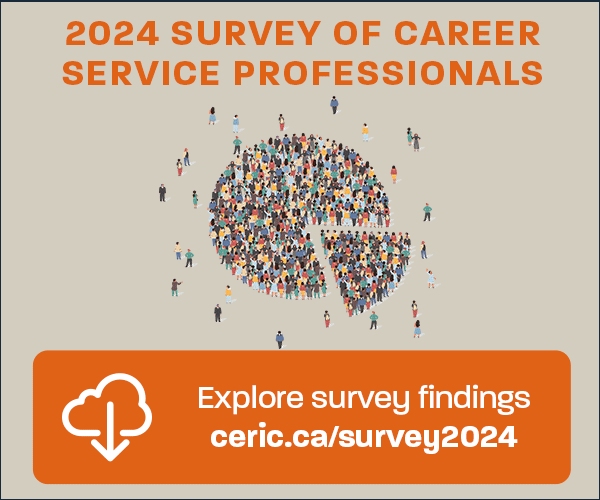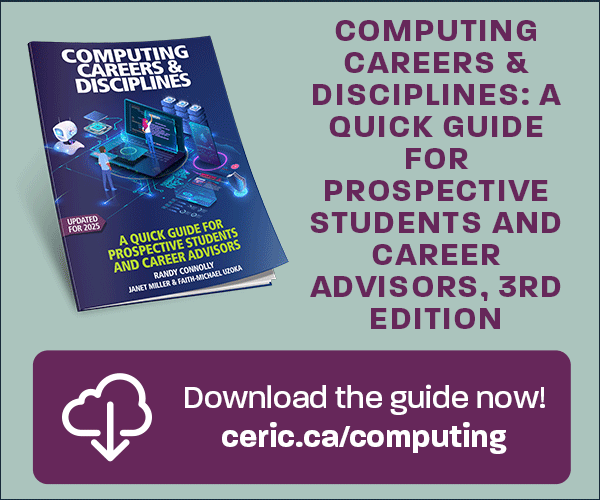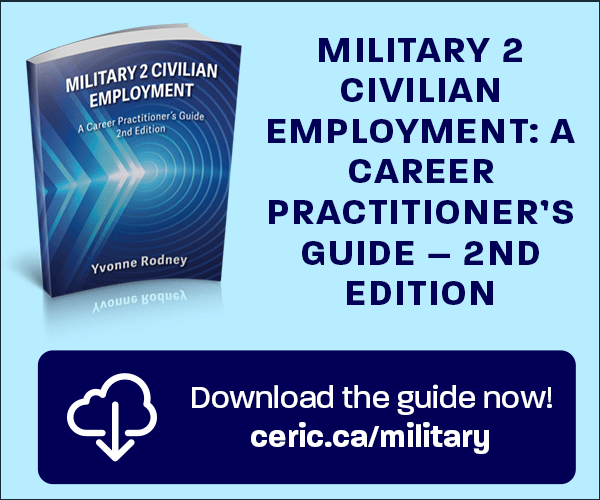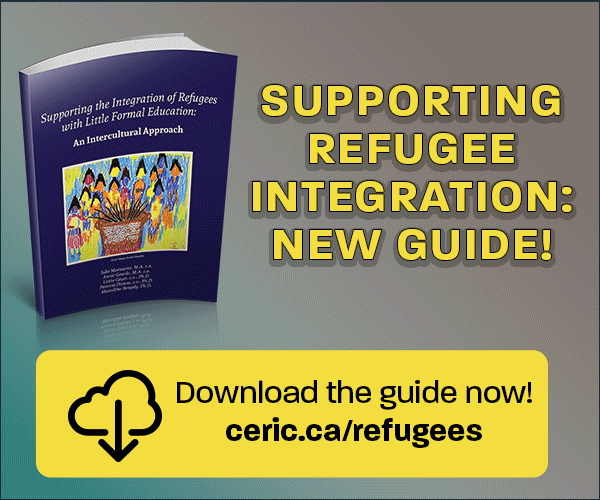Retirees Paying it Forward: A Retiree/Faculty Mentorship Program
DOI:
https://doi.org/10.53379/cjcd.2024.372Keywords:
Mentorship, Retiree Mentors, Mentees Across the Career Continuum, Professional Development, The Mentoring RelationshipAbstract
Retirees often have a desire to offer meaningful contributions to their academic community after retiring from their academic roles. This article presents findings from a pilot study of a multi-component career development mentorship program conducted in a Canadian post-secondary institution. In the study, retiree faculty served as mentors to faculty members from across the academic career continuum. A Merriam-informed case study approach was used to delineate the study of the multi-component mentorship program, and analysis of the data was informed by established processes for reflexive thematic analysis (TA), a method for systematic analytic engagement with qualitative data to produce themes.
References
Allen, T. D. (2007). Mentoring Relationships from the Perspective of the Mentor. In B. R. Ragins & K. E. Kram (Eds.), The Handbook of Mentoring at Work: Theory, Research, and Practice (pp. 123). SAGE Publications, Inc. https://doi.org/10.4135/9781412976619.n5
Allen, T. D., Eby, L. T., Poteet, M. L., Lentz, E., & Lima, L. (2004). Career Benefits Associated With Mentoring for Protégés: A Meta-Analysis. Journal of applied psychology, 89(1), 127-136. https://doi.org/10.1037/0021-9010.89.1.127
Alves, P. C., Oliveira, A. d. F., & Paro, H. B. M. d. S. (2019). Quality of life and burnout among faculty members: How much does the field of knowledge matter? PloS one, 14(3), e0214217-e0214217. https://doi.org/10.1371/journal.pone.0214217
Bean, N. M., Lucas, L., & Hyers, L. L. (2014). Mentoring in higher education should be the norm to assure success: Lessons learned from the faculty mentoring program, West Chester University, 2008-2011. . Mentoring & Tutoring: Partnership in Learning, 22(1), 56-73. https://doi.org/https://doi.org/10.1080/13611267.2014.882606
Blake-Beard, S. D., O’Neill, R. M., & McGowan, E. M. (2008). “Blind Dates?: The Importance of Matching in Successful Formal Mentoring Relationships” In B. R. R. K. E. Kram (Ed.), The Handbook of Mentoring at Work: Theory, Research, and Practice (pp. 617). SAGE Publications, Inc. https://doi.org/10.4135/9781412976619.n25
Bozeman, B., & Feeney, M. K. (2007). Toward a Useful Theory of Mentoring: A Conceptual Analysis and Critique. Administration & society, 39(6), 719-739. https://doi.org/10.1177/0095399707304119
Braun, V., & Clarke, V. (2006). Using thematic analysis in psychology. Qualitative research in psychology, 3(2), 77-101. https://doi.org/10.1191/1478088706qp063oa
Braun, V., & Clarke, V. (2022a). Conceptual and design thinking for thematic analysis. Qualitative psychology (Washington, D.C.), 9(1), 3-26. https://doi.org/10.1037/qup0000196
Braun, V., & Clarke, V. (2022b). Toward good practice in thematic analysis: Avoiding common problems and be(com)ing a knowing researcher. International journal of transgender health, 1-6. https://doi.org/10.1080/26895269.2022.2129597
Cranmer, J. M., Scurlock, A. M., Hale, R. B., Ward, W. L., Prodhan, P., Weber, J. L., Casey, P. H., & Jacobs, R. F. (2018). An Adaptable Pediatrics Faculty Mentoring Model. Pediatrics (Evanston), 141(5), 1. https://doi.org/10.1542/peds.2017-3202
Crites, G. E., Ward, W. L., Archuleta, P., Fornari, A., Hill, S. E. M., Westervelt, L. M., & Raymond, N. (2023). A Scoping Review of Health Care Faculty Mentorship Programs in Academia: Implications for Program Design, Implementation, and Outcome Evaluation. The Journal of continuing education in the health professions, 43(1), 42-51. https://doi.org/10.1097/CEH.0000000000000459
Croke, J., Tosoni, S., & Ringash, J. (2021). “It’s good for the soul:” Perceptions of a formal junior faculty mentorship program at a large academic cancer centre. Radiotherapy and oncology, 162, 119-123. https://doi.org/10.1016/j.radonc.2021.07.003
DeCastro, R., Sambuco, D., Ubel, P. A., Stewart, A., & Jagsi, R. (2013). Mentor networks in academic medicine: moving beyond a dyadic conception of mentoring for junior faculty researchers. Academic medicine, 88(4), 488-496. https://doi.org/10.1097/ACM.0b013e318285d302
Donnerwheeler, & Integral Visions Consulting Inc. (2016). Building Successful Mentoring Relationships.
Ebuwei, P. (2020). Mentoring as a Way of Advancing Tenure and Promotion in Higher Education Institutions in the United States: A Systematic Review ProQuest [Dissertations Publishing].
Garvin, T. (2019). The shifting context of academic geography in Canada. The Canadian geographer, 63(3), 405-412. https://doi.org/10.1111/cag.12538
Goldberg, C. E., & Baldwin, R. G. (2018). Win‐Win: Benefits of Expanding Retirement Options and Increasing the Engagement of Retired Faculty and Staff. New directions for higher education, 2018(182), 69-74. https://doi.org/10.1002/he.20281
Hall, J. G. (2017). Reflections on an academic career. Molecular genetics & genomic medicine, 5(3), 187-195. https://doi.org/10.1002/mgg3.298
Hall, J. G. (2021). Continuing contributions of older academics. American journal of medical genetics. Part A, 185(2), 647-657. https://doi.org/10.1002/ajmg.a.61946
Hobson, A. J., Castanheira, P., Doyle, K., Csigás, Z., & Clutterbuck, D. (2016). The Mentoring across Professions (MaP) Project: What can teacher mentoring learn from international good practice in employee mentoring and coaching? .
Jackevicius, C. A., Le, J., Nazer, L., Hess, K., Wang, J., & Law, A. V. (2014). A formal mentorship program for faculty development. American journal of pharmaceutical education, 78(5), 100-100. https://doi.org/10.5688/ajpe785100
Law, A. V., Bottenberg, M. M., Brozick, A. H., Currie, J. D., DiVall, M. V., Haines, S. T., Jolowsky, C., Koh-Knox, C. P., Leonard, G. A., Phelps, S. J., Rao, D., Webster, A., & Yablonski, E. (2014). A checklist for the development of faculty mentorship programs. American journal of pharmaceutical education, 78(5), 98-98. https://doi.org/10.5688/ajpe78598
Martin, J. B., & Douglas, D. H. (2018). Faculty Mentorship: Making It Work Across the Career Continuum Through Development, Implementation, and Evaluation of a Formal Mentorship Program. Nursing education perspectives, 39(5), 317-318. https://doi.org/10.1097/01.NEP.0000000000000310
Mendez, Tygret, J. A., Conley, V. M., Keith, R., Haynes, C., & Gerhardt, R. (2019a). Emeriti faculty as mentors: the benefits and rewards of mentoring the next generation. Mentoring & Tutoring: Partnership in Learning, 27(4), 439-457. https://doi.org/10.1080/13611267.2019.1649921
Mendez, S., Conley, V. M., Tygret, J., Gerhardt, R., & Haynes, C. (2019b). Encore: Retired Faculty as Mentors. Change (New Rochelle, N.Y.), 51(3), 59-61. https://doi.org/10.1080/00091383.2019.1606612
Mendez, S. L., Martin Conley, V., Keith, R. S., Haynes, C., & Gerhardt, R. (2017). Mentorship in the engineering professoriate: exploring the role of social cognitive career theory. International journal of mentoring and coaching in education, 6(4), 302-316. https://doi.org/10.1108/IJMCE-12-2016-0077
Menzin, A. W., Kline, M., George, C., Schindler, J., Yacht, A. C., & Fornari, A. (2020). Toward the Quadruple Aim: Impact of a Humanistic Mentoring Program to Reduce Burnout and Foster Resilience. Mayo Clinic proceedings. Innovations, quality & outcomes, 4(5), 499-505. https://doi.org/10.1016/j.mayocpiqo.2020.05.001
Merriam, S. B., & Tisdell, E. J. (2016). Qualitative research : a guide to design and implementation (Fourth edition. ed.). Jossey-Bass, a Wiley Brand.
Morgan, D. (1997). Focus Groups as Qualitative Research. SAGE Publications Inc.
Pololi, L. H., & Evans, A. T. (2015). Group Peer Mentoring: An Answer to the Faculty Mentoring Problem? A Successful Program at a Large Academic Department of Medicine. The Journal of continuing education in the health professions, 35(3), 192-200. https://doi.org/10.1002/chp.21296
Pope-Ruark, R. (2022). Unraveling faculty burnout: pathways to reckoning and renewal. Johns Hopkins University Press. https://go.exlibris.link/PBLWn4ss
Ragins, B. R. (2016). From the ordinary to the extraordinary. Organizational Dynamics, 45(3), 228-244. https://doi.org/10.1016/j.orgdyn.2016.07.008
Ragins, B. R., & Scandura, T. A. (1999). Burden or blessing? Expected costs and benefits of being a mentor. Journal of organizational behavior, 20(4), 493-509. https://onlinelibrary.wiley.com/doi/10.1002/(SICI)1099-1379(199907)20:4%3C493::AID-JOB894%3E3.0.CO;2-T
Sabagh, Z., Hall, N. C., & Saroyan, A. (2018). Antecedents, Correlates and Consequences of Faculty Burnout. Educational research (Windsor), 60(2), 131-156. https://doi.org/10.1080/00131881.2018.1461573
Sarabipour, S., Hainer, S. J., Arslan, F. N., de Winde, C. M., Furlong, E., Bielczyk, N., Jadavji, N. M., Shah, A. P., & Davla, S. (2021). Building and sustaining mentor interactions as a mentee. The FEBS journal, 289(6), 1374-1384. https://doi.org/10.1111/febs.15823
Silverman, D. (2006). Interpreting qualitative data: Methods for analyzing talk, text, and interaction (3rd ed.). SAGE.
Stalmeijer, R. E., McNaughton, N., & Van Mook, W. N. K. A. (2014). Using focus groups in medical education research: AMEE Guide No. 91. Medical teacher, 36(11), 923-939. https://doi.org/10.3109/0142159X.2014.917165
Strage, A. A. (2018). Bringing Academic Retirement Out of the Closet. New directions for higher education, 2018(182), 29-45. https://doi.org/10.1002/he.20278
Van Ummersen, C. A., McLaughlin, J. M., & Duranleau, L. J. (Eds.). (2014). Faculty Retirement: Best Practices for Navigating the Transition (First ed.). Stylus Publishing, LLC.
Waddell, J., Martin, J., Schwind, J., & Lapum, J. (2017). A Faculty-Based Mentorship Circle: Positioning New Faculty for Success. Canadian journal of higher education (1975), 46(4), 60-75. https://doi.org/10.47678/cjhe.v46i4.186173
Webber, E., Vaughn-Deneen, T., & Anthony, M. (2020). Three-Generation Academic Mentoring Teams: A New Approach to Faculty Mentoring in Nursing. Nurse educator, 45(4), 210-213. https://doi.org/10.1097/NNE.0000000000000777
Yakoboski, P. (2015). Trends and Issues: Understanding the Faculty Retirement (non)Decision. T.-C. Institute. https://www.tiaainstitute.org/sites/default/files/presentations/2017-02/understanding-the-faculty-retirement-nondecision.pdf
Yazan, B. (2015). Three Approaches to Case Study Methods in Education: Yin, Merriam, and Stake. The Qualitative Report, 20(2), 134-152.
Zellers, D. F., Howard, V. M., & Barcic, M. A. (2008). Faculty Mentoring Programs: Reenvisioning Rather than Reinventing the Wheel. Review of educational research, 78(3), 552-588. https://doi.org/10.3102/ 0034654308320966
Zerzan, J. T., Hess, R., Schur, E., Phillips, R. S., & Rigotti, N. (2009). Making the most of mentors: a guide for mentees. Academic medicine, 84(1), 140-144. https://doi.org/10.1097/ACM.0b013e3181906e8f

Published
How to Cite
Issue
Section
License
Copyright (c) 2024 Canadian Journal of Career Development

This work is licensed under a Creative Commons Attribution-NonCommercial-NoDerivatives 4.0 International License.
















